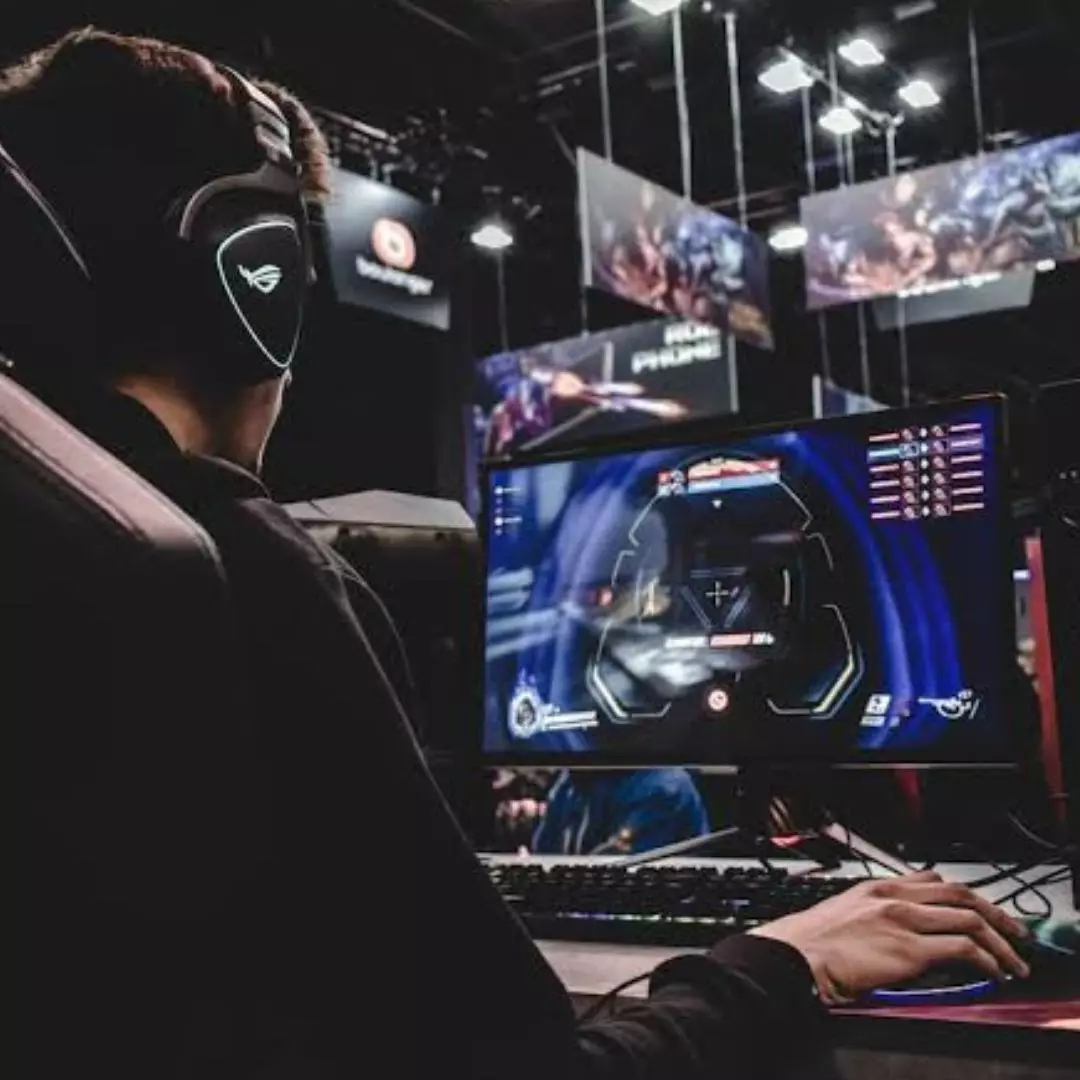
Image Credits: Unsplash (representational)
Online Gaming Restrictions Eased During Holiday Season; Know How China Tackled Internet Addiction Among Youth
Writer: Laxmi Mohan Kumar
She is an aspiring journalist in the process of learning and unlearning many things. Always up for discussions on everything from popular culture to politics.
Others/World, 21 Jan 2023 10:27 AM GMT
Editor : Shiva Chaudhary |
A post-graduate in Journalism and Mass Communication with relevant skills, specialising in content editing & writing. I believe in the precise dissemination of information based on facts to the public.
Creatives : Laxmi Mohan Kumar
She is an aspiring journalist in the process of learning and unlearning many things. Always up for discussions on everything from popular culture to politics.
A report by games market intelligence firm in China found that the number of youth gamers declined from a peak of 122 million in 2020 to 82.6 million in 2022.
With the week-long Lunar New Year holidays nearing in China, children are the most excited as the holiday season also brings in relaxation on the strict regulations on online gaming. The China government will be easing the regulations to permit one extra hour of online games each day. For years the authorities have imposed strict control over the time children spend playing games online. While many parents appreciated the move, it also faced its share of criticism for adopting extreme measures to fight "internet addiction." As the government claims success in curbing the problem, they have chosen to relax the rules during the holiday season.
Switching To Youth Mode Settings
The Lunar New Year holidays, China's biggest festival, came along this year with the news of extra days and hours of online gaming for children. In 2019, the authorities restricted the play-time of minors to 90 minutes a day on weekdays and banned them from playing online between 10 pm and 8 am. By 2021, these restrictions got even harsher, with minors being permitted to play online games for only an hour a day on Fridays, weekends, and public holidays.
Social media and gaming companies set up or strengthened "youth mode" settings on their applications similar to the child-lock features to protect minors. These settings included features that limit use, control payments, and display age-appropriate content. To avoid children bypassing these features, some popular games enabled a system for real-name registration and facial recognition gateways. Additionally, for over eight months, game approvals were halted.
Following this, a report by games market intelligence firm Niko Partners found that the number of youth gamers declined from a peak of 122 million in 2020 to 82.6 million in 2022. A year after the restrictions, the government-affiliated industry group - Game Industry Group Committee, also issued a report declaring that the gaming addiction problem among minors was "basically resolved." The report suggested that more than 75 per cent of minors in the country played online games for less than three hours a week and most parents also expressed satisfaction with the new restrictions.
The gaming industries and psychology experts from Beijing conveyed that regardless of the restrictions, parents played a crucial role in implementing them at homes. Parents are the nucleus of such initiatives aimed at curbing gaming addiction. So a good share of praise for the government's decision goes to the parents who continued to follow it despite their children's tantrums.
Beijing resident Zhong Feifei, a mother to an 11-year-old, conveyed that she had spent comparatively less time on games since the restrictions came into effect. With Zhong encouraging her daughter to utilise the time effectively to play with other children and conduct interesting activities, she has now entirely given up playing online games during the prohibited time. Zhong, who had also enjoyed playing online games, avoids doing so when spending time with her child and sets a good example by leaving the house to play with her daughter.
Speaking about this, the Game Industry Group's report also commented that the "biggest loophole" in the gaming restrictions was parents who help their kids bypass the controls. If the parents set an example, the kids would follow it. So despite the rise of underground markets for online gaming that would come in the light of harsh restrictions, minors would not get trapped in the same.
Resolving Pandemic-Contributed Device Addiction
The online gaming restrictions had come up during the pandemic, with news regarding growing gaming addiction and children spending massive amounts online. A report by New Indian Express quoted Tao, a professional whose centre treats an average of 20 kids with severe internet addiction each month. He stated that the centre had seen fewer minors dealing with addiction following the restrictions during the pandemic. One of the reasons he cited for many kids spending lots of time gaming was because they watched and learned from their parents playing online games.
This is also why not all parents agreed with the government's heavy-handed approach. Huang Yan, the mother of a 12-year-old daughter and 7-year-old son, spoke of the pros online gaming fosters. She conveyed that it inculcated a sense of teamwork among children and helped them make friends. Expressing conflict with the government's restrictions, she stated that the internet, games, and social media are an overall trend, and it's impossible to stop children from using them. In her opinion, like many other parents in the gaming community, such interventions are only required when children cannot control their gaming habits.
Also Read: 'Dear Bommai Uncle': 2,000 Students Write To Karnataka CM To Drop Sankey Flyover Project
 All section
All section














